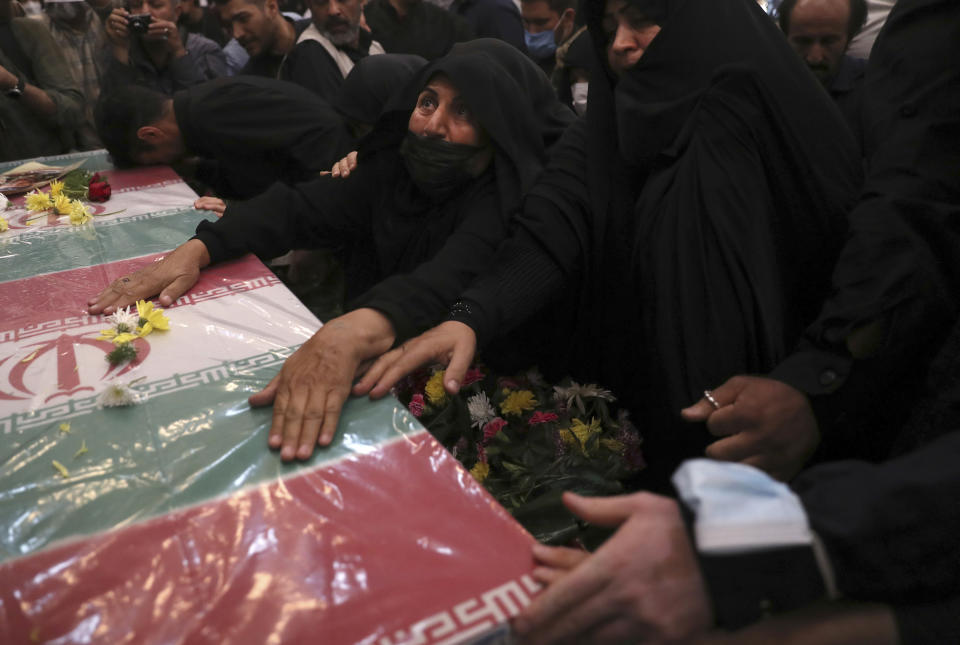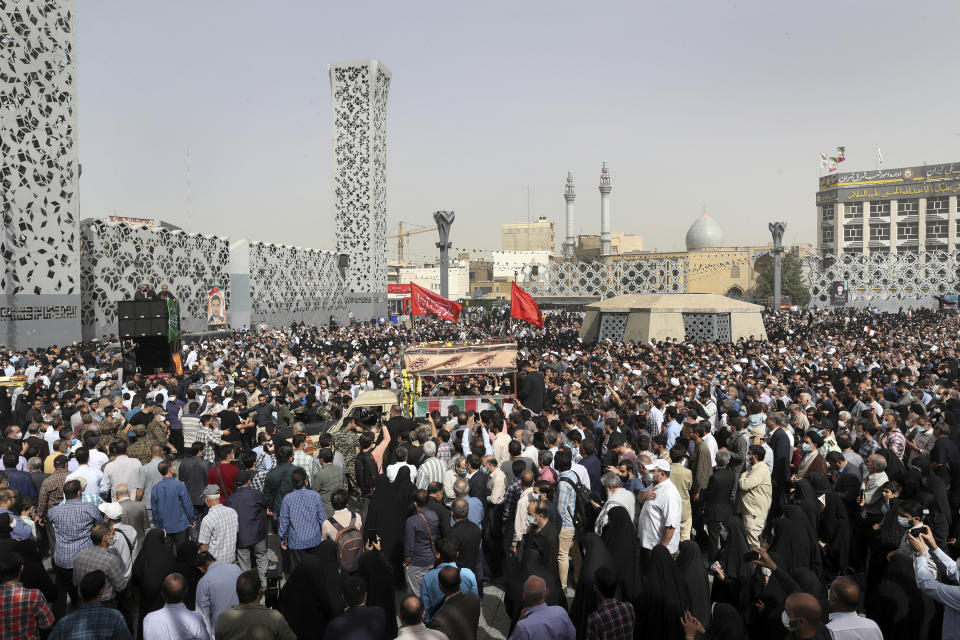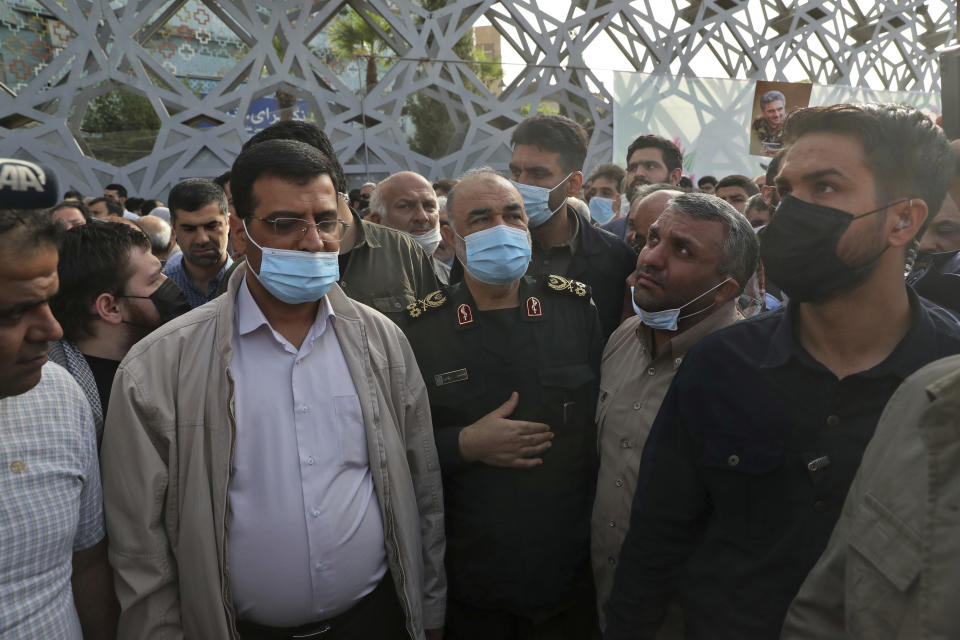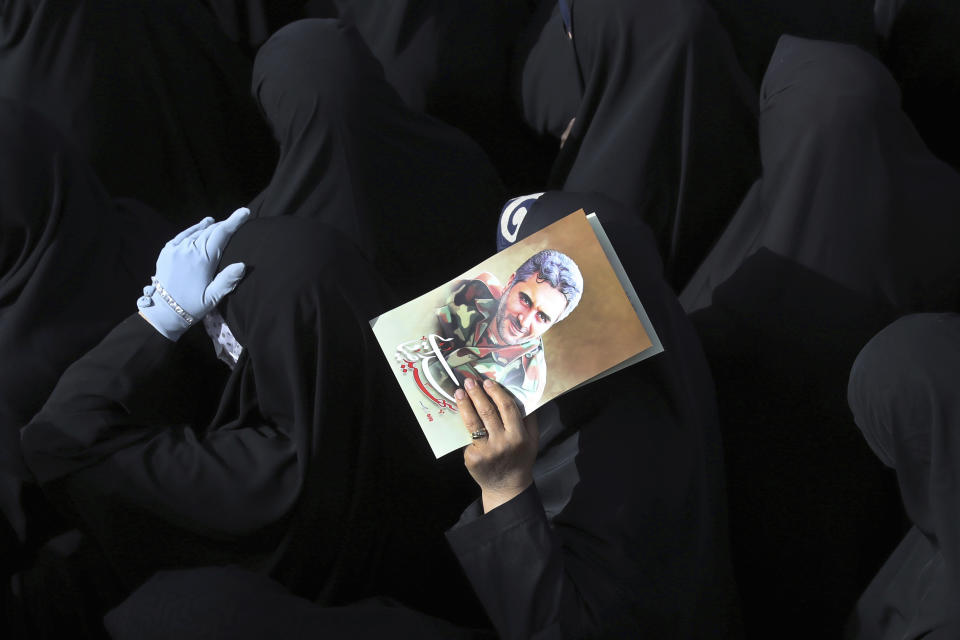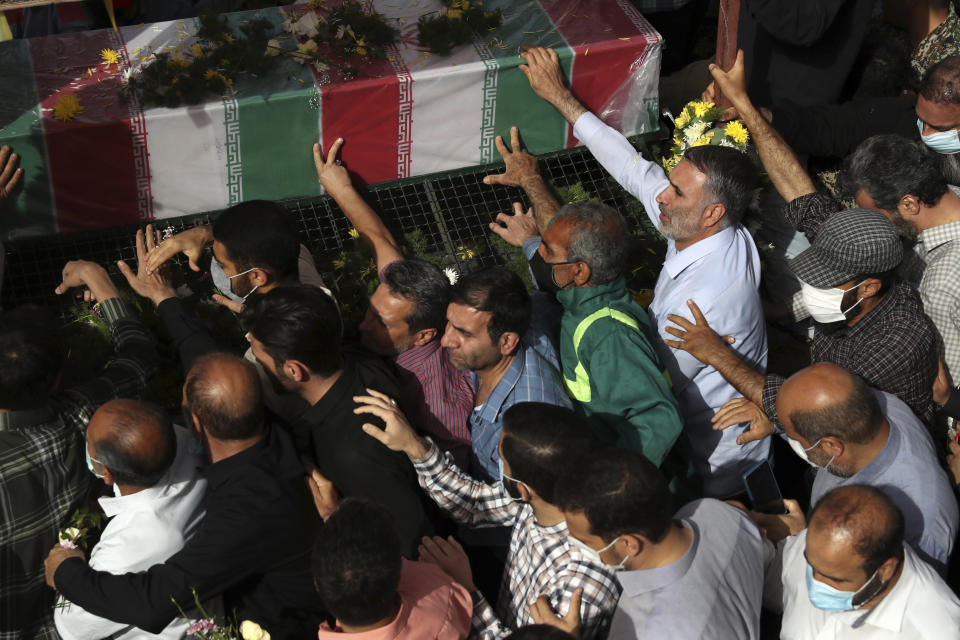Thousands attend funeral for slain Guard colonel in Iran
- Oops!Something went wrong.Please try again later.
- Oops!Something went wrong.Please try again later.
TEHRAN, Iran (AP) — Thousands of mourners poured into the streets of Tehran on Tuesday to pay their respects to a senior Revolutionary Guard member fatally shot by two gunmen on a motorcycle earlier this week, punching the air with their fists and chanting “Death to Israel.”
The killing on Sunday of Col. Hassan Sayyad Khodaei bore the hallmarks of previous deadly shooting attacks in Iran blamed on Israel, such as those targeting the country’s nuclear scientists.
There has been no claim of responsibility for the attack. Iranian officials have blamed “global arrogance,” which is code for the United States and Israel, for Khodaei's killing.
The funeral procession snaked through the main Tehran cemetery as mourners shouted anti-U.S. and anti-Israel slogans. A prominent poster hailed Khodaei as a martyr along with Gen. Qassem Soleimani, the top Iranian general killed in a U.S. drone strike in 2020 in Iraq, and featured tattered Israeli, American and British flags.
“Iran is a victim of terrorism,” the banner declared, overlaid with the logos of the Mossad and Central Intelligence Agency.
From the funeral, Guard commander Gen. Hossein Salami vowed to the angry masses that Iran's response to “any threat or action will be harsh and regrettable.” Gen. Esmail Ghaani, leader of Iran’s expeditionary Quds Force, also attended and offered condolences at Khodaei's home on Monday night.
Iran's nuclear negotiator visited the crime scene, underscoring the government's shock. Iranian President Ebrahim Raisi vowed revenge. A street in Tehran has already been named after him. The colonel was buried beside Soleimani's bodyguard, who was killed along with the commander in the American airstrike.
The 50-year-old Khodaei remains a shadowy figure and Iran has yet to offer biographic detail beyond saying that he was a member of the elite Quds Force that oversees operations abroad through Iran's allied militias across the Middle East. The Guard has described him as “defender of the shrine” — a reference to Iranians who support militias fighting the extremist Islamic State group in Syria and Iraq.
The manner of the slaying evoked previous targeted attacks by Israel in Iran. In November 2020, a top Iranian nuclear scientist, Mohsen Fakhrizadeh, was killed while traveling in a car outside Tehran.
Women in black chadors wailed and wept over Khodaei's coffin, an ornate box covered with flowers and draped with the Iranian flag and mourning symbols of the Shiite faith.
“We want revenge only," Moghtaderi, one of the mourners, told The Associated Press at the funeral. She gave only her last name. “Enemies must be aware that we are loyal to the martyrs and their blood is so precious to us.”
Iranian security forces are still pursuing the assailants, who escaped, state media reported. Authorities have yet to make any arrests over the killing.
The procession took place as a sandstorm blanketed Iran, shuttering schools and government offices in the capital until Wednesday. Authorities described the level of air pollution in Tehran as “hazardous," urging the public to stay indoors. The Alborz mountain range surrounding Tehran traps fumes and makes the city one of the most polluted on the planet, according to the World Health Organization.
Meanwhile in the country's central desert, a fighter jet crashed during a training exercise, killing two pilots, state media reported. Reports did not identify the cause of the crash at the Anarak training site near the central city of Isfahan. An investigation was underway.
Many of Iran's aircraft are old — an assortment of U.S.-made military aircraft purchased before the 1979 Islamic Revolution. Decades of Western sanctions have made it difficult for Iran to obtain spare parts and maintain the sometimes-faltering fleet.
Iran modeled its F-7 fighter after China’s J-7, considered a copy of the Soviet-era MiG-21. Beijing built the aircraft for export to countries including Iran, Pakistan, Sudan and North Korea. Iranian pilots now use the F-7 for training, with occasional mishaps. Four years ago, an F-7 similarly crashed near Isfahan because of what was later described as a technical problem.
___
Associated Press writer Isabel DeBre in Dubai, United Arab Emirates, contributed to this report.



